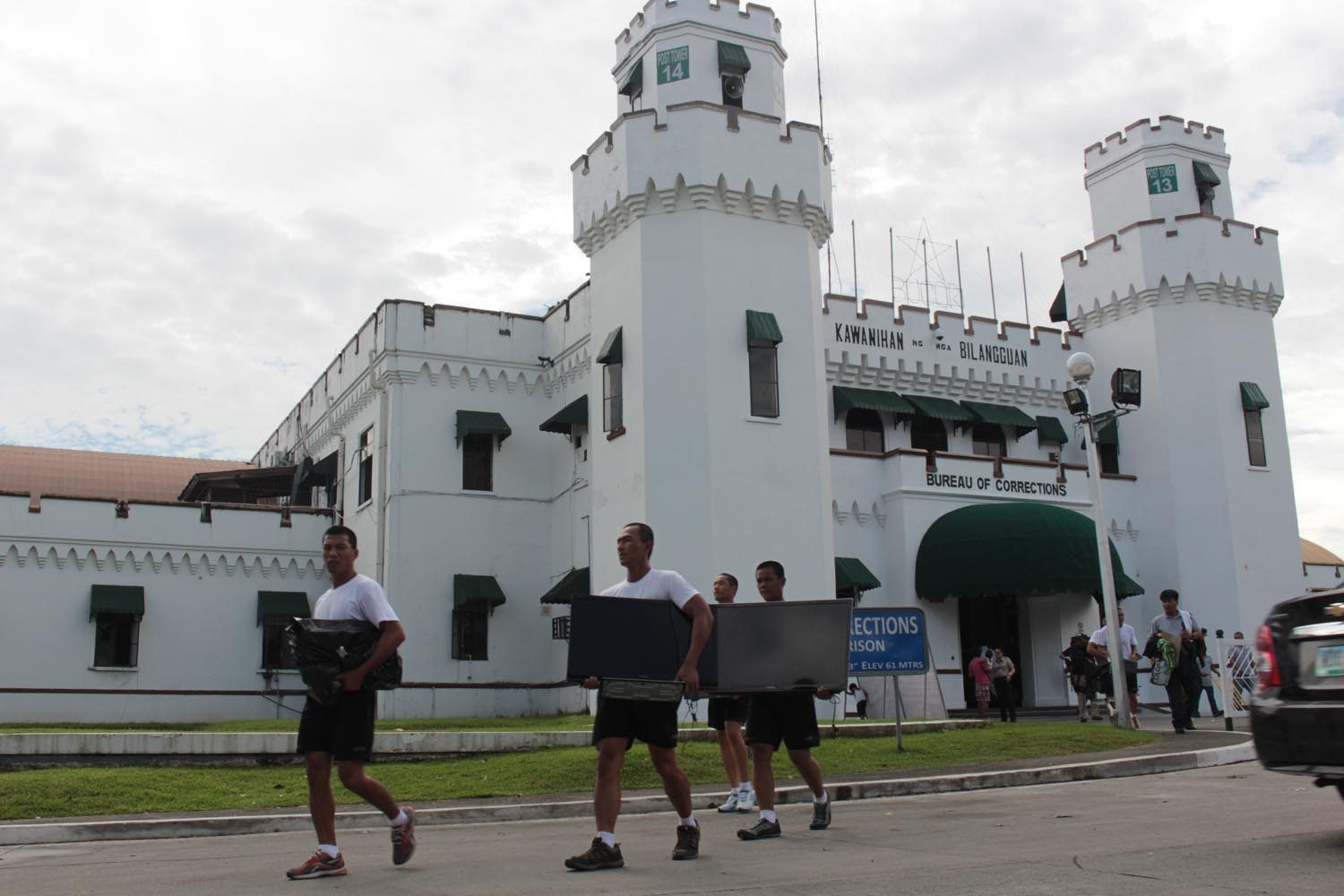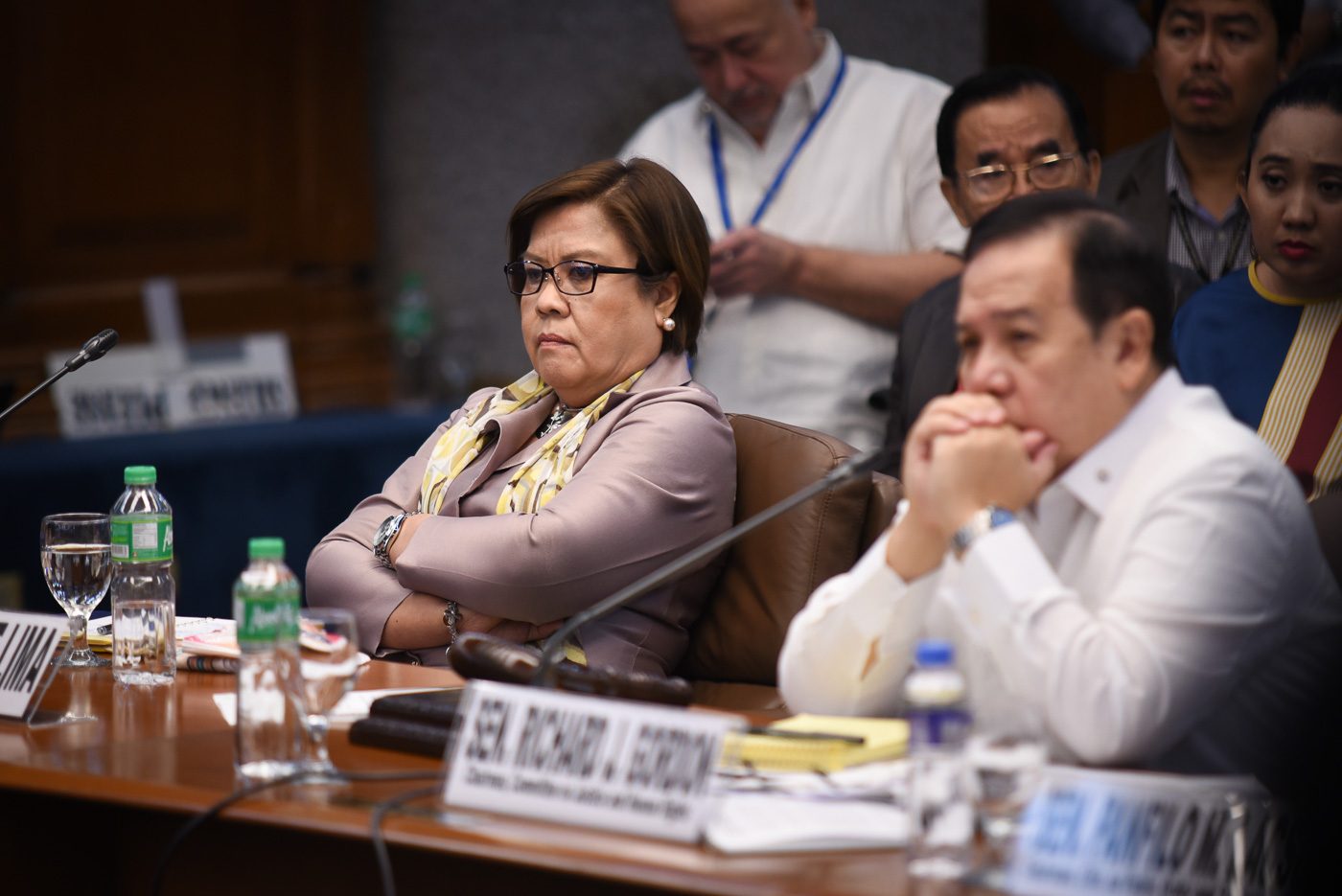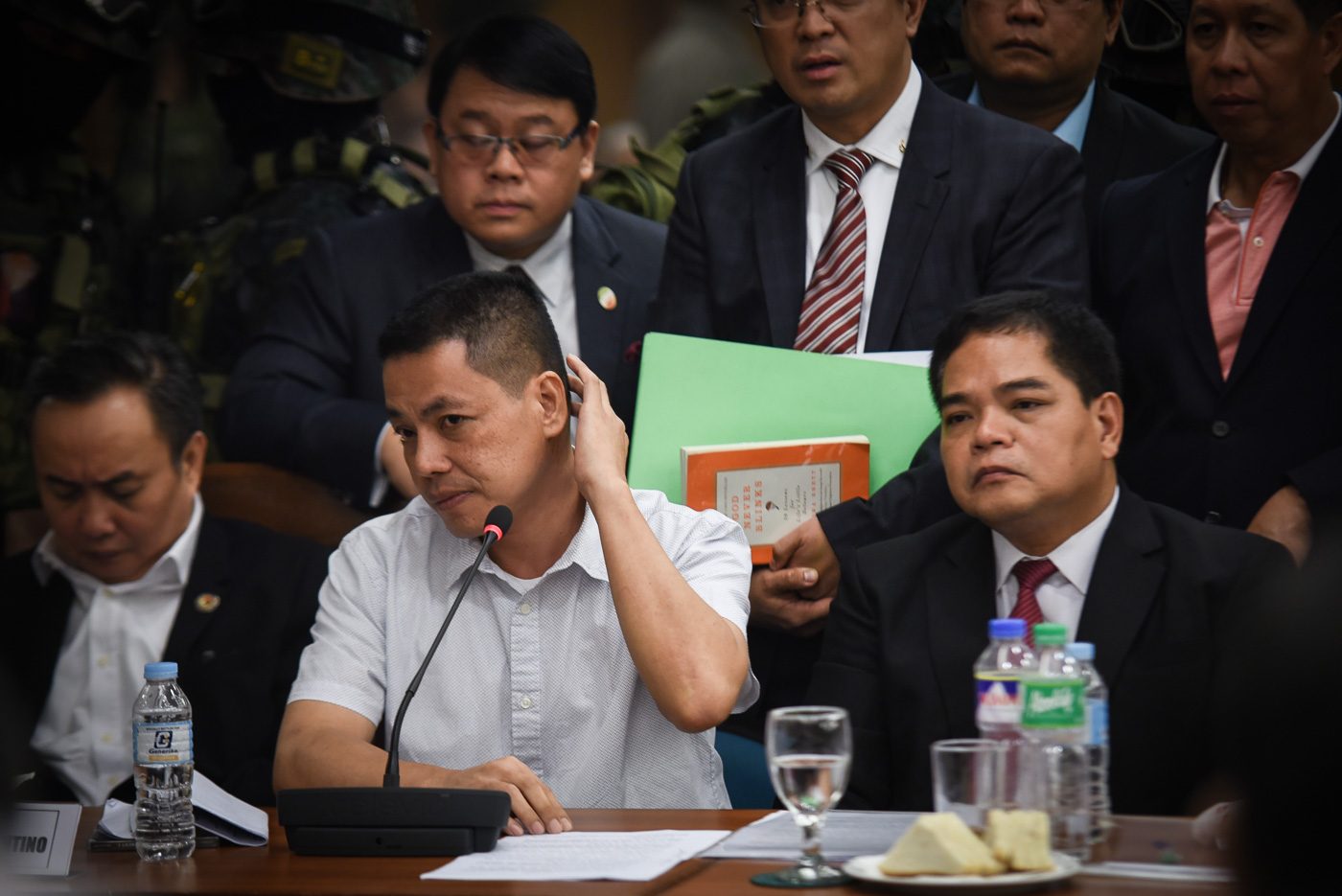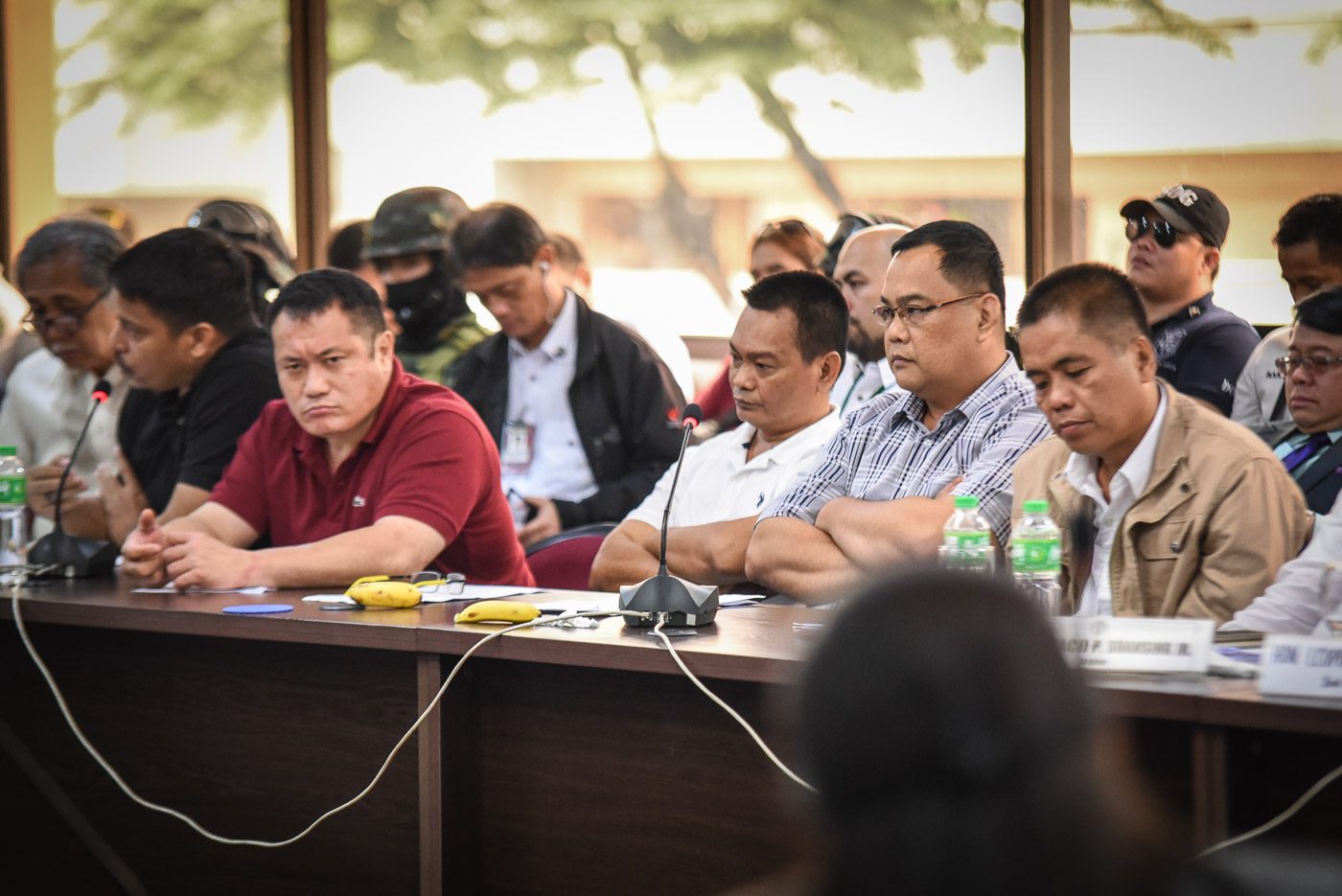SUMMARY
This is AI generated summarization, which may have errors. For context, always refer to the full article.

MANILA, Philippines – Over a course of two days, the House of Representatives tackled a problem long-brewing in the Philippines’ main penitentiary: the spread of illegal drugs within the high-security compound and the ability of convicts to continue with their businesses from there.
The House justice committee’s hearings, held September 20 and 21, zoomed in on Senator Leila de Lima and why the illegal trade went unabated while she was justice secretary for almost 6 years.
The New Bilibid Prison is managed by the Bureau of Corrections (BuCor), which is under the Department of Justice. De Lima was justice secretary of President Benigno Aquino III from 2010 until she resigned in late 2015 to run for senator.
De Lima, among President Rodrigo Duterte’s fiercest critics, dismissed the probe as a “sham” even before it began. The neophyte legislator claims the hearing is meant to discredit her after she led a Senate probe into the rise of killings amid Duterte’s war on drugs.
The senator was eventually stripped of her chairmanship of the Senate justice committee days after she presented a witness, who accused Duterte of forming the so-called “Davao Death Squad,” a vigilante group that targeted criminals, personal enemies, and suspects in Davao.
Both Duterte and De Lima have dismissed the allegations against them.
But during the hearing, legislators – mostly members or allies of the ruling PDP-Laban – and witnesses trained their guns on the former justice chief, whom they said coddled drug lords and even benefited from their illegal trade for her senatorial bid.
Here’s a quick summary of the allegations, questions, and refutations raised in the congressional hearings:
De Lima and alleged ‘drug payola’
A huge chunk of the hearing focused on De Lima and Bilibid convict Jaybee Sebastian.
Justice Secretary Vitiliano Aguirre’s star witness, robbery convict Herbert Colanggo, said he himself gave De Lima a monthly “payola” supposedly to fund her “plans,” or her 2016 senatorial run.
Colanggo claimed it was Joenel Sanchez, De Lima’s bodyguard, who relayed the then-justice secretary’s “request.” Sanchez is a member of the Presidential Security Group (PSG) and now under investigation.

Another prominent character in the supposed narrative in De Lima’s involvement in illegal drugs is Jaybee Sebastian, a Bilibid convict who is also commander of the Sigue-Sigue Commando group. Sebastian gathered gang leaders inside Bilibid to consolidate illegal drugs operations.
This was supposedly to help De Lima raise election funds. In exchange, convicts were assured of favors and their protection.
Other convicts, most of them former detainees at the Maximum Security Compound, also claimed that they were ordered by Sebastian or De Lima’s aides to sell drugs and remit the proceeds to the then justice secretary.
Two former National Bureau of Investigation (NBI) officials, one of whom was assigned to the BuCor, claimed they themselves delivered bags of money to De Lima in her home in the southern Metro Manila.
De Lima, in a press conference on Thursday, September 22, denied allegations that she coddled Sebastian. The former justice secretary said that, in fact, Sebastian was a “government asset.”
All of those who testified against De Lima during the hearing – convicts included – were granted immunity from suit stemming from their statements.
‘The King of Bilibid’
Several convicts also accused Sebastian of being the “law” in the New Bilibid Prison, citing his alleged ties to De lima.
They accused Sebastian of being De Lima’s favored inmate, who supposedly ordered other convicts to sell drugs inside – or outside – the prison to raise funds for De Lima.
These witnesses said De Lima visited Sebastian several times and even stayed inside his “kubol” (tent) for several hours.
Noel Martinez claimed Sebastian had once inmates’ head “hammered” inside prison. “You will just follow what he says to avoid conflict,” he said of Sebastian.
The preferential treatment for him supposedly showed when, in 2014, De Lima led a raid on the Maximum Security Compound inside Bilibid. Following the operation, the so-called “Bilibid 19,” convicts with alleged links to illegal drugs, were isolated from the rest of the penitentiary and temporarily housed in the NBI.

Inmates lamented that while they were locked up in a new location, Sebastian was allowed to stay in the penitentiary. It was during this time that they claim Sebastian “consolidated” the illegal drugs trade inside the prison.
The 2014 operation was also highlighted during the hearing, after Police Director Benjamin Magalong, the current third-in-command at the Philippine National Police (PNP), revealed that De Lima left out the Criminal Investigation and Detection Group (CIDG) in the operation.
Magalong lamented how the former justice secretary pushed through with the raid without the CIDG despite months of high-level meetings with this unit that he headed at the time.
De Lima criticized the “outrageous insinuation” over the raid and explained that the CIDG was left out because the NBI was the lead unit in the joint operation. Other police units – the National Capital Region Police Office and the Special Action Force – joined the operation.
Corruption inside prison?
The witnesses also accused some Bilibid officials at that time of corruption. Rafael Ragos, who was then officer-in-charge of BuCor, supposedly collected money from different inmates and gangs inside the prison.
He also allegedly protected some inmates while being unfair to the rest. Jun Ablen, Ragos’ confidante who is also an NBI agent, also supposedly helped Ragos collect money.
Both Ragos and Ablen are witnesses in the House probe.
Jojo Baligad, an inmate convicted for murder, said Ragos also collected P100,000 from their gang weekly to give them privileges inside prison. Baligad said someone who claimed to be the staff of former BuCor chief Franklin Bucayo, a certain “Colonel Elie,” met with several inmates to ask money “for the boys.”
The money they got – P50,000 and, at one point, P100,000 – was supposedly for “Colonel Elie” and Bucayo’s trips. Another official, a certain “Eugene Ciruela” of the investigation section also supposedly collected P50,000 from Baligad’s “kubol” regularly.

De Lima, who was elected senator in May 2016, has been at the receiving end of controversial accusations. President Duterte himself has accused her of coddling drug lords. He presented a drug matrix that supposedly proves her involvement in the illicit industry.
The senator, a member of the Liberal Party, has dismissed these allegations.
But the current justice secretary, Aguirre, has a different take on things: “We are also in the belief that, even as of yesterday, we have enough evidence to file a case because we have sufficient evidence for probable cause.” – Rappler.com
Add a comment
How does this make you feel?
There are no comments yet. Add your comment to start the conversation.